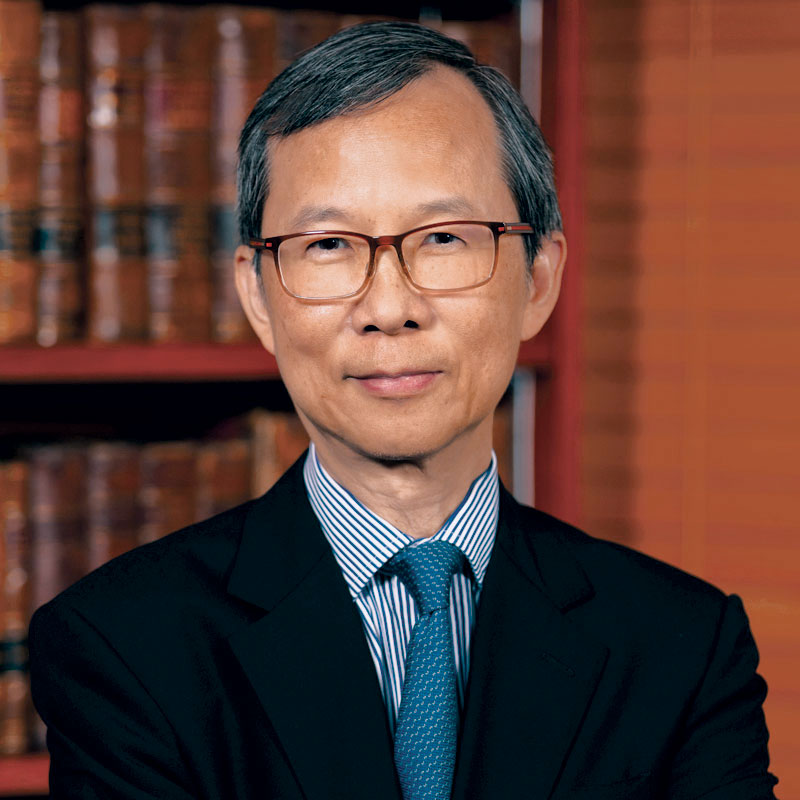Wong Anita Shu Ting v Yuen You Chung [2022] 2 HKC 499, [2022] HKCFI 209
Valentine Yim and Jeff Yau represented the defendant in Wong Anita Shu Ting v Yuen You Chung [2022] 2 HKC 499, [2022] HKCFI 209.
A property was acquired by husband (Hung) and wife (Lee) as joint tenants. Matrimonial proceedings commenced between Lee and Hung. By an Order by consent, it was agreed that Hung, from the grating of the Decree Absolute, had to transfer inter alia all his interest in and share in the property to Lee free of encumbrances. This transfer was in full and final settlement of all claims that Lee and Hung could claim against each other in family proceedings. By an assignment (the 2010 Assignment), Hung assigned to Lee absolutely all his shares rights title benefits and interest of and in the property. Later, the property was assigned by Lee to the plaintiff, who has been holding the property as sole registered owner, upon registration of the assignment. The plaintiff entered into a preliminary sale and purchase agreement with the defendant, and a formal agreement was subsequently entered into. Under Clause 7(a) of the formal agreement, it was stated that the vendor shall give a good title pursuant to s 13A (hk) Conveyancing and Property Ordinance (Cap 219), prove title under s 13, and submit title documentation. The plaintiff’s solicitors submitted title documentation to the defendant’s solicitors and requisitions were raised by the defendant’s solicitors regarding the 2010 Assignment, namely, that it did not constitute proper assignment, and a confirmatory deed was required to be executed by the assignor and assignee. The matter could not be resolved. The plaintiff commenced proceedings for, inter alia, a declaration that he had proved good title to the property and had satisfactorily answered the requisition raised by the defendant’s solicitors.
Held, granting the application and making declarations that the plaintiff had shown good title and had satisfactorily answered the requisition raised by the defendant’s solicitors:
(1) A vendor generally was obliged to show good title before completion and to give (or make) good title on completion. The first obligation was to show good title. In Hong Kong, this was done by the vendor sending the relevant documents themselves to the purchaser’s solicitors for perusal. The obligation to make a good title required the vendor to show that he alone, or with the concurrence of some person or persons whose concurrence he could compel, could convey the whole legal estate and equitable interest in the land sold, free from encumbrances except for those disclosed by the contract. This was an implication arising from the obligation to make a good title. A good title is one which could at all times and in all circumstances be forced upon an unwilling purchaser in an action for specific performance. A good title does not mean a perfect title, free from every possible blemish. Whenever a question like this arose, it must be approached from the stand-point of a willing purchaser and a willing vendor, both possessed of reasonable robust common sense, both intending to see the transaction through to completion in terms of their bargain. Au Wai Ming & Anor v Kam Tze Ming Alfred & Anor [2009] 4 HKC 469 ; [2010] 1 HKLRD 198; Jumbo King Ltd v Faithful Properties Ltd [1999] 4 HKC 707 ; [1999] 3 HKLRD 757; Kan Wing Yau & Anor v Hong Kong Housing Society [1988] 2 HKLR 187 and Mexon Holdings Ltd v Silver Bay International Ltd [2000] 2 HKC 1 ; [2000] 1 HKLRD 935 followed (paras 20-23).
(2) A doubtful title arose where there was some element of uncertainty whether the vendor could convey what he had contracted to convey or whether the title could be successfully challenged by some third party. While the Court would not force a doubtful title on a purchaser, if the facts and circumstances of a case were so compelling to the mind of the Court that the Court concluded beyond reasonable doubt that the purchaser would not be at risk of a successful challenge, it should declare in favour of a good title shown. The ‘no real risk’ test was inapplicable where the title was obviously bad. A doubtful title was one where there was some uncertainty as to whether or not the title could be successfully challenged. A bad title was one where there was no uncertainty – a challenge would most certainly be successful. MEPC Ltd v Christian-Edwards & Ors [1981] AC 205; and Siu Wing Yee Angeline v Earning Yield Ltd [2013] 6 HKC 281 followed (paras 24-26).
(3) The 2010 Order was made by consent of Lee and Hung. There must therefore be an antecedent mutual agreement by the parties to put an end to the joint tenancy and to create a tenancy in common so that Hung’s half share in the property could be disposed of and assigned to Lee. Mutual agreement provided a flexible and informal mode of severance. The agreement did not need to take the form of a specifically enforceable contract. The significance of the agreement was that it served as an indication of a common intention to sever. It was therefore not necessary for the 2010 Order to expressly spell out a severance of the joint tenancy; this could be inferred from the fact that severance by mutual agreement could be implied, such as can be inferred from conduct which necessarily involves severance, or simply by a course of dealing. The fact that Lee and Hung consented to the 2010 Order and followed up by the execution of the 2010 Assignment could only mean that the right of survivorship under the previous joint tenancy would no longer operate. There was after all no hard and fast rule as to how protracted the course of dealing must be in order to effect a severance. The reference to the decree absolute at para 3 of the 2010 Order only dictated the time within which Hung must transfer his interests in the Property to Lee. It did not dictate whether or when any severance in equity had taken place, which would remain to be governed by the three methods stated in Williams v Hensman. The fact that Hung had in fact executed the 2010 Assignment in November 2010 meant that it was unrealistic to doubt whether a decree absolute had in fact been made prior to November 2010 There was no requisition from the defendant’s solicitor to the plaintiff’s solicitor seeking evidence on the existence of the decree absolute. Williams v Hensman (1861) 70 ER 862 ; (1861) 1 J & H 546 considered (paras 40, 42, 45).
[The above is excerpted from the headnote to the report in HKC.]



